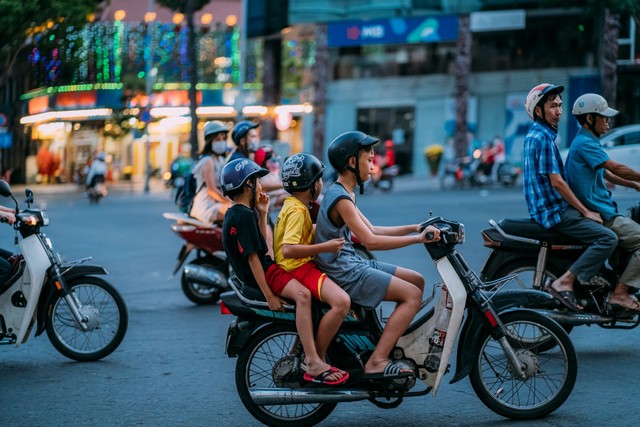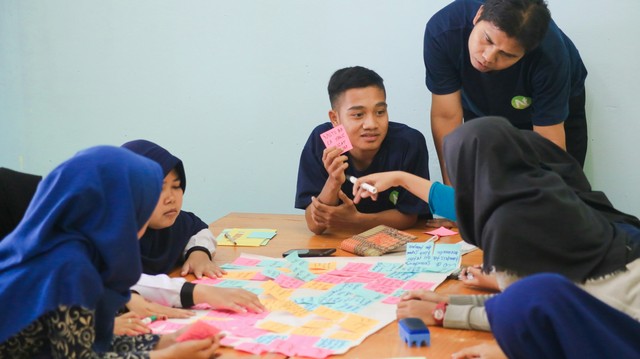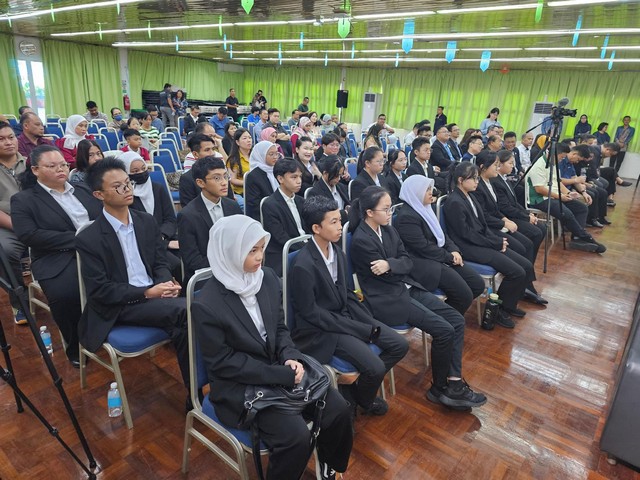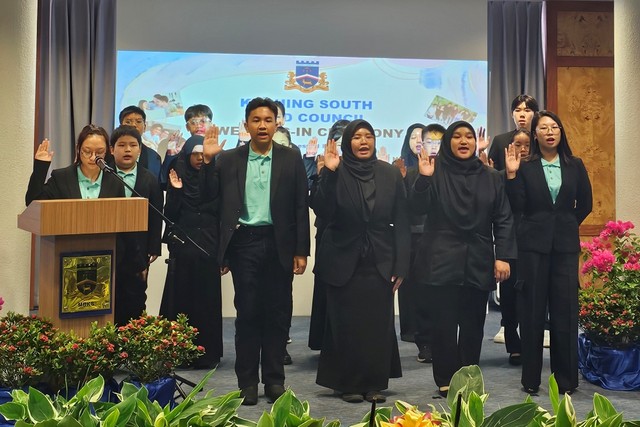Part and parcel of implementing the Child Friendly Cities Initiative (CFCI) is the establishment of a child or youth council, which tends to consist of individuals aged 18 and below within the jurisdiction of participating local authorities.
It is a way of enabling children to be involved actively in the development of their cities and communities. The United Nations Children’s Fund (UNICEF) notes that their participation matters for it is their fundamental right to express their opinions on matters related to their well-being, receive information, and take part in decision-making processes.
Engaging children in discussions about their lives is also essential for adult stakeholders to develop and implement more relevant, sustainable and inclusive programmes, services, policies and practices.
Of great significance, giving children the right and space to voice their thoughts can protect them against discrimination, violence, exploitation and injustice they may face in abusive environments.
Especially for adolescents, empowering them through participatory opportunities can enhance their skills and relationships within their communities; at the same time, providing adult stakeholders the opportunity to gain insights from observing their growth, subsequently enriching their own experiences.
Most importantly, involving children in development planning and implementation by local governments can promote their understanding of democracy and accountability.
“Moreover, when well executed, child participation at the school, community and municipality levels is especially important because it allows all children from different walks of life to reflect on and influence decisions affecting them,” UNICEF adds.

However, the organisation points out that guaranteeing their effective participation involves considering a wide range of factors, primarily incorporating three dimensions of participation: Process, Quality and Levels of Participation.
In essence:
- Considering that participation is never a one-off activity, its process requires space, voice, audience and influence, where ongoing engagement, proper feedback, support and access to decision-makers are ever present.
- Effective participation should also fulfil the basic requirements for quality child participation, as defined by the Committee on the Rights of the Child. They are transparent and informative; voluntary; respectful; relevant; child-friendly; inclusive; supported by training; safe and sensitive to risk; and accountable.
- Based on the context, issues, and available support and resources, there are varying levels of participation that children can be involved in: consultative, collaborative and child-led. While these levels serve different purposes, they must comply with the aforementioned process and quality of participation to ensure their success.
Beyond Achieving Child-Friendly City Status
For Sarawak that has be making headways in transforming its cities and towns to become more child-friendly, the formation of the children’s council provides the opportunity for children to truly engage in the progress of their areas.

As representatives, they can offer their perspectives to development matters affecting them, as well as connect with their peers to discuss and gain feedback concerning policies, programmes, projects and other activities carried out by the local government.

“This is a significant milestone for Sarawak, as we promote the rights of children through their active participation in the children’s council.
“The inclusive involvement of young people in local decision-making will transform the landscape of age-friendly and liveable cities across the participating municipalities in Sarawak,” said Minister for Women, Early Childhood and Community Well-being Development Sarawak YB Dato Sri Hajah Fatimah Abdullah.
Following its signing of the CFCI memorandum of understanding (MoU) with UNICEF in 2022, Majlis Bandaraya Kuching Selatan (MBKS) has formed its children’s council in August 2024 – the first local authority to do so in Sarawak.
The council comprises 18 members aged between 11 and 17, who have been selected upon undergoing the application and interview processes, as well as fulfilling other criteria set by the selection committee in MBKS.
They are expected to actively lend their voices, contribute to their community, and develop their leadership skills as they help to create a “safe, inclusive and nurturing environment” for their peers in Kuching.
“We want to empower you (children), to give you the opportunity, to let you participate and think about the policies,” said Deputy Premier and Minister for Public Health, Housing and Local Government YB Datuk Amar Prof Dr. Sim Kui Hian during his speech at the swearing-in ceremony.
Since then, other local authorities in Sarawak who are embarking on CFCI have been or are looking to establish their own children’s council.
Sibu Municipal Council (SMC) together with Sibu Rural District Council (SRDC), for instance, launched their own in October 2024, with 20 children aged between 13 to 16 having sworn in as members.
Meanwhile, Dewan Bandaraya Kuching Utara (DBKU) is making efforts to form its own as a means to encourage civic engagement among young people within its jurisdiction, especially in addressing challenges pertaining to urban development.
References:
Effective, representative, and inclusive child participation at the local level. (2022, August). Child-Friendly Cities Initiative. https://www.childfriendlycities.org/documents/effective-representative-and-inclusive-child-participation-local-level
Marlynda, M. (2024, August 10). 18 sworn in as inaugural members of MBKS Children’s Council. DayakDaily. https://dayakdaily.com/18-sworn-in-as-inaugural-members-of-mbks-childrens-council/
MBKS sets up Child Council to attain child-friendly city status. (2024, May 24). The Borneo Post. https://www.theborneopost.com/2024/05/24/mbks-sets-up-child-council-to-attain-child-friendly-city-status/
Samuel, A. (2024, October 22). DBKU to form children’s council, allow them to speak out on urbanisation devt issues. The Borneo Post. https://www.theborneopost.com/2024/10/22/dbku-to-form-childrens-council-allow-them-to-speak-out-on-urbanisation-devt-issues/
Sanders, N.T. (2024, July 12). Sarawak takes the lead in child-friendly cities. New Sarawak Tribune. https://www.newsarawaktribune.com.my/sarawak-takes-the-lead-in-child-friendly-cities/ Varkisa, A. (2024, October 26). Sibu second to set up child council. New Sarawak Tribune. https://www.newsarawaktribune.com.my/sibu-second-to-set-up-child-council/






